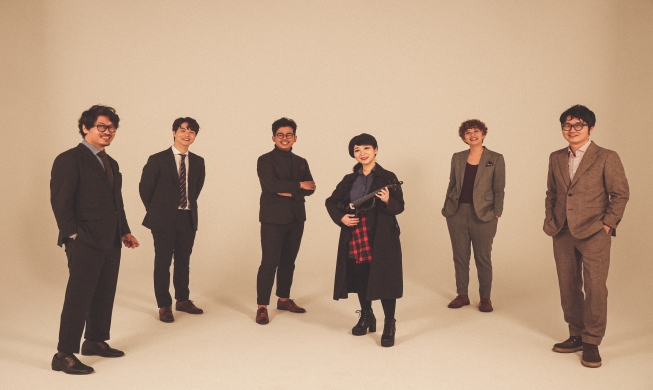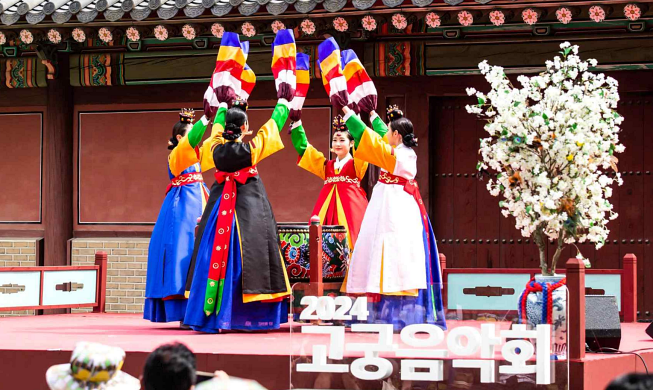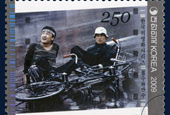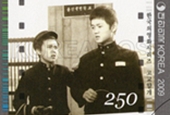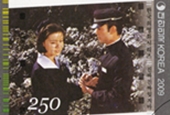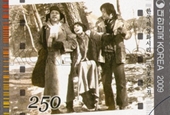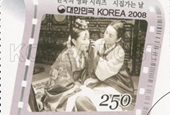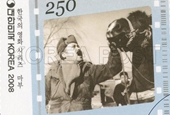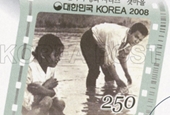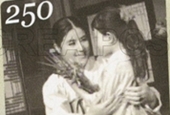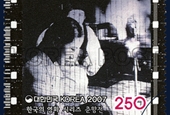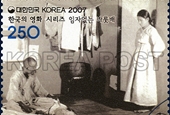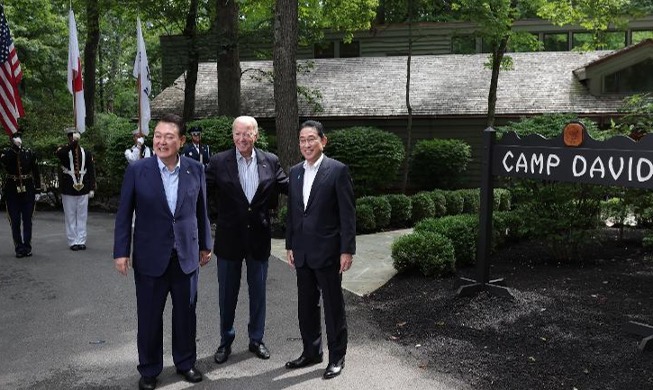-
 Korea.net's 24-hour YouTube channel
Korea.net's 24-hour YouTube channel- NEWS FOCUS
- ABOUT KOREA
- EVENTS
- RESOURCES
- GOVERNMENT
- ABOUT US

The beautiful scenery of Korea across the four seasons and the country's traditional music are splendidly portrayed in the film "Seopyeonje."
The film is a dramatization of the novel of the same name by Lee Chung-joon. The film was directed by celebrated director Im Kwon-taek. When it was released in 1993, it broke the box office record of 1 million tickets sold, a first in the history of Korean cinema.
The film is set in Boseong, Jeollanam-do (South Jeolla Province), in the early 1960s. The film starts as a now older Dong-ho, played by Kim Kyu-chul, is immersed in memories of his childhood, listening to a traditional narrative pansori concert. He flashback to his youth, when the man Yu-bong, played by Kim Myung-kon, is called to the stage to sing for all the villagers from Dong-ho's youth. There, the man Yu-bong meets Dong-ho's mother. The two adults get close and they all move in together, with Yu-bong bringing along his stepdaughter from an earlier relationship, Song-hwa, played by Oh Jung-hae. Yu-bong teaches his stepdaughter Song-hwa how to sing and Dong-ho how to play the drums, while he himself performs the pansori singing. Together, they begin to make a living.
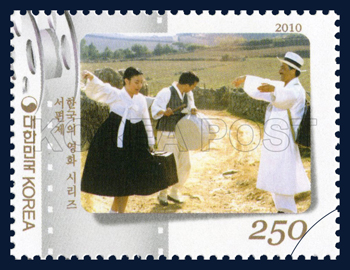
However, Dong-ho leaves home as pansori is becoming less and less popular, with fewer people requesting their performances. Also, he is no longer able to bear the poor treatment from people around him. Yu-bong wants to teach Song-hwa how to sing perfectly and he grows afraid that she may leave him.
Yu-bong drugs Song-hwa and causes her to go blind to keep her beside him. Yu-bong earnestly takes care of Song-hwa as she slowly loses her eyesight. However, he suffers from guilt for having made his stepdaughter blind. In the end, he apologizes to her before he dies. A few years later, Dong-ho reunites with Song-hwa, again in a tavern. Dong-ho holds the drumstick and asks Song-hwa to sing. Song-hwa realizes that it is he playing the drum, just as her step father used to do. However, they again go separate ways.
Explaining about the film, director Im Kwon-taek said, "Based on the novel, I wanted to express the beautiful nature of the Jeollanam-do in the film, to describe the way Koreans come to terms with their pain and sorrow and to integrate the sounds, sentiments and images of Korea on the screen. I also wanted to show how great an arts form pansori is."
Im Kwon-tae received Golden Goblet - Best Director Award and Oh Jung-hae obtained the Best Female Actress Award for the film at the Shanghai International Film Festival in 1993. The movie was also given the Best Film and the Best Director awards at the 31st Daejongsang Film Awards. At the 14th Blue Dragon Awards, it was given the Best Film and the Best Actor awards.
By Limb Jae-un
Korea.net Staff Writer
jun2@korea.kr
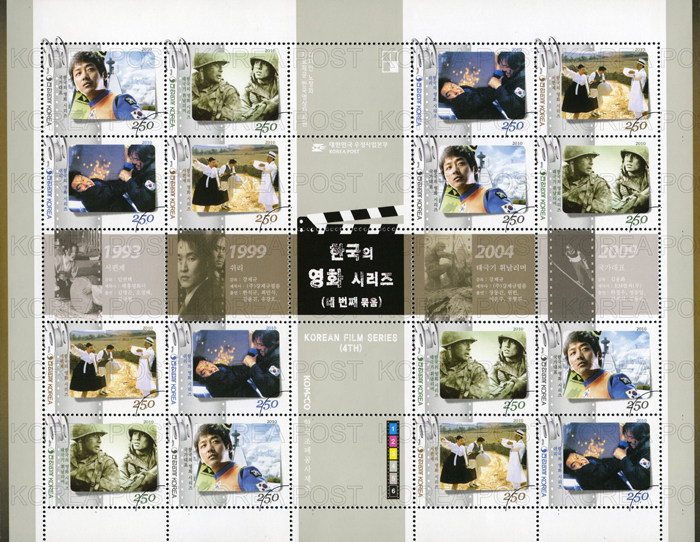
To watch a short video introducing the stamp series, please click here:
To view the film in Korean with English subtitles, please click here.
The film is a dramatization of the novel of the same name by Lee Chung-joon. The film was directed by celebrated director Im Kwon-taek. When it was released in 1993, it broke the box office record of 1 million tickets sold, a first in the history of Korean cinema.
The film is set in Boseong, Jeollanam-do (South Jeolla Province), in the early 1960s. The film starts as a now older Dong-ho, played by Kim Kyu-chul, is immersed in memories of his childhood, listening to a traditional narrative pansori concert. He flashback to his youth, when the man Yu-bong, played by Kim Myung-kon, is called to the stage to sing for all the villagers from Dong-ho's youth. There, the man Yu-bong meets Dong-ho's mother. The two adults get close and they all move in together, with Yu-bong bringing along his stepdaughter from an earlier relationship, Song-hwa, played by Oh Jung-hae. Yu-bong teaches his stepdaughter Song-hwa how to sing and Dong-ho how to play the drums, while he himself performs the pansori singing. Together, they begin to make a living.

'Seopyeonje' (1993) is directed by Im Kwon-taek and produced by Taehung Pictures. (image: Korea Post)
However, Dong-ho leaves home as pansori is becoming less and less popular, with fewer people requesting their performances. Also, he is no longer able to bear the poor treatment from people around him. Yu-bong wants to teach Song-hwa how to sing perfectly and he grows afraid that she may leave him.
Yu-bong drugs Song-hwa and causes her to go blind to keep her beside him. Yu-bong earnestly takes care of Song-hwa as she slowly loses her eyesight. However, he suffers from guilt for having made his stepdaughter blind. In the end, he apologizes to her before he dies. A few years later, Dong-ho reunites with Song-hwa, again in a tavern. Dong-ho holds the drumstick and asks Song-hwa to sing. Song-hwa realizes that it is he playing the drum, just as her step father used to do. However, they again go separate ways.
Explaining about the film, director Im Kwon-taek said, "Based on the novel, I wanted to express the beautiful nature of the Jeollanam-do in the film, to describe the way Koreans come to terms with their pain and sorrow and to integrate the sounds, sentiments and images of Korea on the screen. I also wanted to show how great an arts form pansori is."
Im Kwon-tae received Golden Goblet - Best Director Award and Oh Jung-hae obtained the Best Female Actress Award for the film at the Shanghai International Film Festival in 1993. The movie was also given the Best Film and the Best Director awards at the 31st Daejongsang Film Awards. At the 14th Blue Dragon Awards, it was given the Best Film and the Best Actor awards.
By Limb Jae-un
Korea.net Staff Writer
jun2@korea.kr

Issued in 2010, the fourth series of Korean film stamps by Korea Post includes 'Seopyeonje,' 'Swiri,' 'Tae Guk Gi: The Brotherhood Of War' and 'Take Off.' (image: Korea Post)
To watch a short video introducing the stamp series, please click here:
To view the film in Korean with English subtitles, please click here.
Related Contents
Most popular
- Band Second Moon spreads fusion sound on California tour
- 76 national heritage sites to allow free admission from May 15
- First Korean-style 'taxi driver' diner opened in New York
- Africa's appeal on full display at downtown festival in Seoul
- UK univ., KCC in London host Korea Day event in Sheffield



